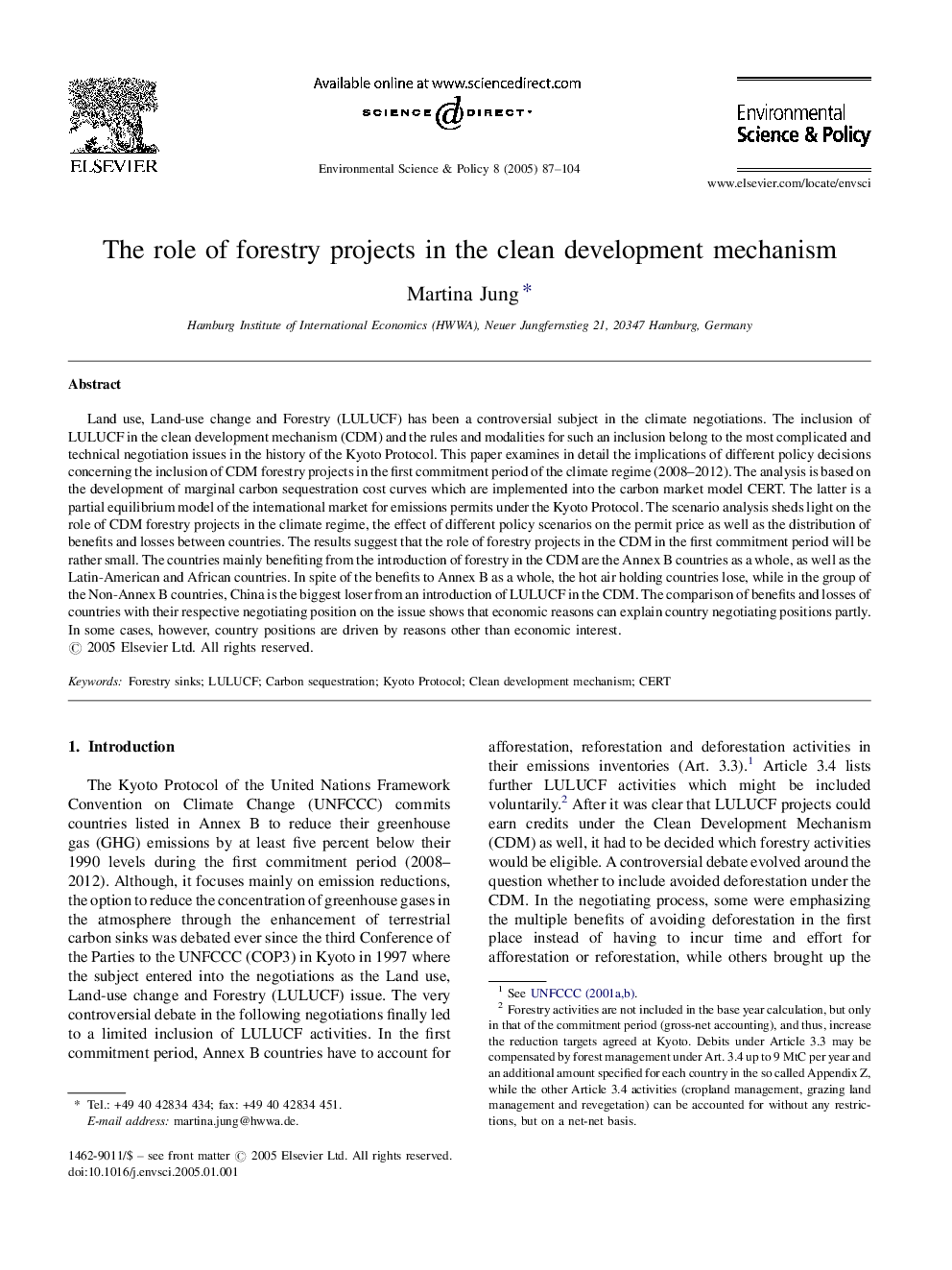| کد مقاله | کد نشریه | سال انتشار | مقاله انگلیسی | نسخه تمام متن |
|---|---|---|---|---|
| 10504762 | 946782 | 2005 | 18 صفحه PDF | دانلود رایگان |
عنوان انگلیسی مقاله ISI
The role of forestry projects in the clean development mechanism
دانلود مقاله + سفارش ترجمه
دانلود مقاله ISI انگلیسی
رایگان برای ایرانیان
کلمات کلیدی
موضوعات مرتبط
مهندسی و علوم پایه
مهندسی انرژی
انرژی های تجدید پذیر، توسعه پایدار و محیط زیست
پیش نمایش صفحه اول مقاله

چکیده انگلیسی
Land use, Land-use change and Forestry (LULUCF) has been a controversial subject in the climate negotiations. The inclusion of LULUCF in the clean development mechanism (CDM) and the rules and modalities for such an inclusion belong to the most complicated and technical negotiation issues in the history of the Kyoto Protocol. This paper examines in detail the implications of different policy decisions concerning the inclusion of CDM forestry projects in the first commitment period of the climate regime (2008-2012). The analysis is based on the development of marginal carbon sequestration cost curves which are implemented into the carbon market model CERT. The latter is a partial equilibrium model of the international market for emissions permits under the Kyoto Protocol. The scenario analysis sheds light on the role of CDM forestry projects in the climate regime, the effect of different policy scenarios on the permit price as well as the distribution of benefits and losses between countries. The results suggest that the role of forestry projects in the CDM in the first commitment period will be rather small. The countries mainly benefiting from the introduction of forestry in the CDM are the Annex B countries as a whole, as well as the Latin-American and African countries. In spite of the benefits to Annex B as a whole, the hot air holding countries lose, while in the group of the Non-Annex B countries, China is the biggest loser from an introduction of LULUCF in the CDM. The comparison of benefits and losses of countries with their respective negotiating position on the issue shows that economic reasons can explain country negotiating positions partly. In some cases, however, country positions are driven by reasons other than economic interest.
ناشر
Database: Elsevier - ScienceDirect (ساینس دایرکت)
Journal: Environmental Science & Policy - Volume 8, Issue 2, April 2005, Pages 87-104
Journal: Environmental Science & Policy - Volume 8, Issue 2, April 2005, Pages 87-104
نویسندگان
Martina Jung,